Engineering employers want to evaluate your technical abilities and understand your experience to determine how well you match the role and how easily you can adapt to unfamiliar scenarios. Expect technical, focused questions to ensure you have the experience and background you’ve claimed on your CV. The most common technical assessment is a technical interview, but you could also face coding challenges, technical presentations, or case study exercises. Preparing for these assessments is crucial to showcase your skills and stand out from other applicants.
Key Takeaways
- Technical assessments help employers verify your technical competence and understanding of engineering principles.
- Preparation is essential for technical interviews, including reviewing key concepts and practicing problem-solving questions.
- Different types of technical assessments include coding challenges, technical presentations, and case study exercises.
- Effective study strategies, such as creating a study schedule and utilizing online resources, can enhance your preparation.
- Communicating technical concepts clearly and handling stress are critical skills for succeeding in technical assessments.
Understanding the Purpose of Technical Assessments

Why Employers Use Technical Assessments
Employers use technical assessments to gain a concrete understanding of your technical abilities and skills as they pertain to the role. These tests help an employer decide if you’re capable of everything your resume and cover letter say you are. They can help you stand out from the other applicants.
Types of Technical Assessments
Technical assessments come in various forms, each designed to evaluate different aspects of your technical skill set. Common types include:
- Coding Challenges
- Technical Presentations
- Case Study Exercises
Common Skills Evaluated
Technical assessments typically evaluate a range of skills, including but not limited to:
- Problem-Solving Abilities
- Coding Proficiency
- System Design
- Analytical Thinking
By knowing what to expect and how to prepare, you can go into your next tech assessment with confidence and achieve a better result.
Preparing for Technical Interviews

Reviewing Key Concepts and Projects
Before diving into technical interviews, it’s crucial to review key concepts and projects relevant to the job you’re applying for. This includes brushing up on fundamental topics like data structures, algorithms, and system design. Revisiting past projects can also help you articulate your experiences and problem-solving approaches effectively.
Practicing Problem-Solving Questions
Technical interviews often involve solving complex problems under time constraints. To prepare, practice problem-solving questions regularly. Utilize resources like LeetCode, HackerRank, and other coding platforms to simulate real interview scenarios. This will not only improve your coding skills but also help you become more comfortable with the interview format.
Mock Interviews and Feedback
Engaging in mock interviews is a highly effective way to prepare. Conduct mock interviews with friends, mentors, or through professional services. These sessions can provide valuable feedback on your performance, helping you identify areas for improvement. Additionally, practicing in a simulated environment can reduce anxiety and boost your confidence during the actual interview.
Remember, preparation is key to tackling the technical interview. The ideal situation for candidates is to find themselves solving a problem very similar to problems they previously solved.
Consider the following resources:
- Data structure/algorithms practice tools, such as LeetCode
- One-on-one interview preparation tools, such as interviewing.io
- General flow and success in interviews, such as Cracking the Coding Interview
Navigating Different Types of Technical Assessments
Technical assessments are a crucial part of the engineering recruitment process. They help employers evaluate a candidate’s technical abilities and problem-solving skills. Understanding the different types of technical assessments can help you prepare more effectively and increase your chances of success.
Coding Challenges and Tests
Coding challenges and tests are common in technical assessments. These can be timed, self-directed tests or live coding sessions with an interviewer. You may be asked to solve algorithmic problems, debug code, or develop a small application. It’s important to practice coding regularly and familiarize yourself with common data structures and algorithms.
Technical Presentations
Technical presentations require you to explain a complex technical concept or project to an audience. This type of assessment evaluates your communication skills and your ability to simplify complex ideas. Practice your presentation skills and use visual aids to make your points clear and engaging.
Case Study Exercises
Case study exercises involve analyzing a real-world problem and proposing a solution. These assessments test your analytical skills and your ability to apply theoretical knowledge to practical situations. Review relevant case studies and practice breaking down problems into manageable parts.
Navigating different types of technical assessments can be challenging, but with the right preparation, you can showcase your skills effectively.
Effective Study Strategies

Creating a Study Schedule
Creating a study schedule is crucial for effective preparation. Consistency is key; allocate specific times each day for studying. Break down your study material into manageable chunks and set realistic goals. This approach helps in maintaining a steady pace and avoiding last-minute cramming.
Utilizing Online Resources
The internet is a treasure trove of study materials. Utilize online resources such as coding platforms, video tutorials, and forums. These resources can provide diverse perspectives and problem-solving techniques. Additionally, many platforms offer practice assessments that mimic real technical assessments, helping you get accustomed to the format and time constraints.
Joining Study Groups
Joining study groups can be incredibly beneficial. Collaborating with peers allows you to gain new insights and understand different approaches to problem-solving. Study groups also provide a support system, making the preparation process less isolating. Regular group discussions can help reinforce your understanding and keep you motivated.
Remember, the goal is to build a strong foundation and boost your confidence. Consistent effort and the right strategies can make a significant difference in your performance.
Communicating Technical Concepts Clearly
When explaining technical concepts, it’s crucial to simplify complex ideas without losing the core message. Break down the information into smaller, digestible parts. Use analogies and real-world examples to make the content relatable. This approach helps in sharing the narrative of your project effectively.
Visual aids can be powerful tools in communicating technical information. Diagrams, flowcharts, and sketches can help clarify your thought process and make abstract concepts more tangible. Don’t hesitate to use a piece of paper or a whiteboard during your explanation.
Practicing your explanations with non-technical audiences can be incredibly beneficial. It forces you to find ways to convey your message in simpler terms, ensuring that you can communicate effectively with team members who may not have a technical background. This practice can also help you identify any gaps in your own understanding.
In many ways, a technical interview focuses on how you communicate technical ideas and information rather than whether you know everything. It’s perfectly alright to ask for further clarification if you need it and, if a sketch or diagram would help you explain something, use a piece of paper (you can bring some paper or ask for some). Engineering projects rarely present textbook problems so your future employer wants to see how you approach problem solving.
Handling Stress and Anxiety

Mindfulness and Relaxation Techniques
Mindfulness and relaxation techniques can be incredibly effective in managing stress and anxiety during technical assessments. Practices such as deep breathing, meditation, and progressive muscle relaxation can help calm your mind and body. Consider setting aside a few minutes each day to practice these techniques, especially as the assessment date approaches.
Time Management During Assessments
Effective time management is crucial during technical assessments. Break down the assessment into manageable sections and allocate specific time slots for each part. This approach can help you stay focused and reduce the feeling of being overwhelmed. Don’t sit in silence and panic if you’re faced with unfamiliar content; instead, acknowledge it and work through it methodically.
Seeking Support and Guidance
Seeking support and guidance from mentors, peers, or professional networks can provide valuable insights and encouragement. Discussing your concerns and strategies with others can help you gain new perspectives and reduce anxiety. Remember, you are not alone in this process, and leveraging your support system can make a significant difference.
Acknowledge when what you’re looking at is new or a concept you only briefly studied in class. Speak with the interviewer, working through the prompt with them so they see how you process new information.
Post-Assessment Steps

Reflecting on Your Performance
After completing a technical assessment, it’s crucial to take some time to reflect on your performance. Identify areas where you excelled and those where you struggled. This self-evaluation will help you understand your strengths and weaknesses, providing a roadmap for future improvement.
Seeking Constructive Feedback
Don’t hesitate to ask for feedback from the interviewers or assessors. Constructive feedback can offer valuable insights into how you can improve. Make sure to ask specific questions about your performance, such as your problem-solving approach or coding efficiency.
Planning for Future Assessments
Use the feedback and your reflections to plan for future assessments. Create a targeted study plan that focuses on areas needing improvement. This proactive approach will help you be better prepared for the next opportunity.
Remember, each technical assessment is a learning experience. Use it to refine your skills and strategies for future success.
After completing your assessment, it’s crucial to take the next steps towards your career goals. Visit our website to explore tailored opportunities that align with your skills and ambitions. Your next big career move is just a click away with Bolt-On Recruitment.
Conclusion
Preparing for technical assessments in engineering recruitment is a crucial step towards securing your desired role. These assessments are designed to evaluate your technical abilities, problem-solving skills, and how well you can apply engineering principles to real-world scenarios. By understanding the types of assessments you might face, such as technical interviews, short tests, presentations, or technical exercises, and by thoroughly preparing for them, you can approach these evaluations with confidence. Remember, these assessments are not just a test of your knowledge, but also an opportunity to showcase your strengths and stand out from other candidates. With the right preparation and mindset, you can turn these challenges into opportunities and take a significant step forward in your engineering career.
Frequently Asked Questions
What is a technical assessment?
A technical assessment is a test or evaluation used by employers to gauge a candidate’s technical skills, knowledge, and problem-solving abilities. It can take various forms, such as coding challenges, technical interviews, or case study exercises.
Why do employers use technical assessments?
Employers use technical assessments to verify the technical competencies and skills that candidates claim on their resumes. They help ensure that the candidate can effectively perform the job duties and handle real-world scenarios.
What types of technical assessments might I face?
You might face a variety of technical assessments, including coding challenges, technical interviews, presentations, short tests, and case study exercises. The type of assessment will depend on the employer and the role you’re applying for.
How can I prepare for a technical assessment?
Preparation involves reviewing key concepts and projects, practicing problem-solving questions, participating in mock interviews, and studying the specific skills relevant to the job. Utilizing online resources and joining study groups can also be beneficial.
What skills are commonly evaluated in technical assessments?
Common skills evaluated include coding and programming abilities, problem-solving skills, understanding of engineering principles, and the ability to explain technical concepts clearly. Communication skills and teamwork may also be assessed.
How should I handle stress and anxiety during technical assessments?
To handle stress and anxiety, practice mindfulness and relaxation techniques, manage your time effectively during assessments, and seek support and guidance from mentors or peers. Preparation and practice can also boost your confidence and reduce anxiety.


